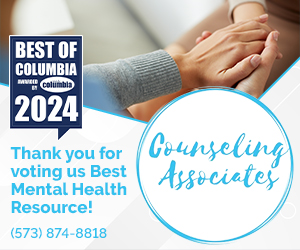Additional reporting by Melody Parry
Photos by L.G. Patterson
You’re never too old to achieve your educational goals. Lifelong learning has become increasingly popular in recent years as Baby Boomers have reached the age of retirement. For some, the purpose of going back to school is to finish their studies and accomplish a degree. But for many more, it’s merely for fun and an opportunity to gain knowledge, discover new interests and keep their minds and bodies fit.
With the rising costs of college, you may see it as an unlikely endeavor. Not to mention, if you’re still in the workforce, where would you find time for the commute and classes, let alone time to study? Fortunately, today, there are many ways to overcome these obstacles.
If you’d like to continue formal learning, first, consider your purpose and what you hope to accomplish. Do you want to earn your degree? Are you primarily interested in broadening your knowledge? Are you in search of new interests and socializing opportunities? Your answer might be one or all of these. But knowing your purpose will give you direction.
For Columbia resident Melanie Karrick, the purpose was to become an Enrolled Agent (EA), a tax practitioner who can represent taxpayers before the IRS. The self- employed fitness professional and seasonal tax preparer began her studies for the new certification at age 58. “I’ve passed the first set of the three-part series. My goal is to complete studies by fall 2023,” she says.
Coordinating Multiple Responsibilities
Like Karrick, you may still be working while you juggle your studies. But with a little planning and finesse, you can develop workable solutions that’ll free- up time for your studies.
Start by making a list of all your responsibilities, then cross off anything unnecessary. Where else can you save time? You can do house cleaning every 10 to 14 days rather than weekly. Skip cleaning anything that isn’t in dire need until the next time. Straighten up only the main rooms daily. Others can wait.
Make a pact to limit volunteering your time until you’ve reached your educational goals. If “no” isn’t in your vocabulary, create reminder cards. Then put them by the phone and in your purse, so you’ll be prepared to say “no” at all times.
Discuss the importance of furthering your education with your partner. Ask which responsibilities your partner is willing to take over until you’ve accomplished your goals.
Ask your employer if you can take shorter lunch breaks and leave earlier. Another possibility is for your employer to allow you fewer but longer workdays for an extra day of study each week.
Continuing Education
Don’t forget to explore your community to find out what opportunities for continuing learning are available in your backyard. In Columbia, MU Extension’s Osher Lifelong Learning Institute offers more than 100 different courses in any given year, covering a wide range of subjects. Each provides a distinctive array of non-credit courses and activities specifically developed for adults age 50 and older who are interested in learning for the joy of learning. Osher offers classes online, in-person and in a hybrid format. Most Osher classes meet one time per week for 90 minutes each; some classes run for four weeks and others eight weeks.

Nontraditional College Credit
If earning your degree is important to you, today, more and more accredited colleges offer a variety of options for earning nontraditional course credit. Look into this first to save time and money.
At some colleges, you can earn Self- Acquired Competency (SAC) credits, which may have different names at various institutions. Such credits are available for a wide range of skills and life experiences. They require compiling a portfolio for faculty evaluation. In your portfolio, you can include on-the-job training, work and volunteer experience, workshops, seminars and more. If you served in the military, you might be eligible for Military Service Credit for education you gained through schools, experience or service.
You also can earn credits by examination. Some of these include: Credits for College-Level Examination Programs (CLEP); Advanced Placement Examinations (AP); and Defense Activity for Non-Traditional Education Support (DANTES).
Credit by examination also can save time and money if you have knowledge in a particular area or if you study and test well. But be sure to check with your institution before enrolling since credit may not be awarded following admission.
Another possibility for credits is if you’ve completed any noncollegiate or in-company sponsored programs or courses. Find out if those programs or courses are any of the thousands reviewed by the American Council on Education (ACE). If so, ask your academic institution if they award credits based on ACE recommendations.
Correspondence And Online Courses
Independent study programs offer a couple of options. You can take online courses in the convenience of your home. These usually require attendance (at your computer) at specific times. Correspondence courses are a good option also because there are no schedules. They typically allow six to 18 months for completion with extensions up to one year. Evening and weekend courses, as well as accelerated programs, also offer some flexibility.
An online program is how Ross Mutrux, owner of Mutrux Automotive and pastor at Boonesboro Christian Church, earned his Certificate of Commissioned Ministry through the Christian Church (Disciples of Christ) of Mid-America. The online courses were through Phillips School of Theology in Tulsa, Oklahoma. He started the degree program at age 63 and has been steadily taking classes for the past four years as his schedule allows.
“I didn’t go looking to get a degree,” Mutrux says. “I was asked to fill in as the pastor for a minister who was leaving. Six months later, the church asked me to stay on in that role. At that time, we decided to review it in a year. At that point, I was contacted by the Disciples of Christ to ask if I would take courses to further my learning.”
While Mutrux has earned his certificate, he keeps taking continuing education courses as his schedule allows. Currently, he’s short on staff and has cut back a little according to his labor needs. “Post-COVID, we are now so short on help that it’s become quite an undertaking to find the time to get your readings in or get your assignments in on time,” Mutrux says. But he’s committed to finding the time necessary to complete his objectives.
How To Pay For Tuition And Books
There are many options for financing your education. The federal Pell Grant is available regardless of age and is awarded based on financial need. The maximum award amount for the 2017- 2018 school year was $5,920.
Several other options include: the Federal Supplemental Education Opportunity Grant (FSEOG); the Federal Work Study program; the Federal Perkins Loan; Federal Subsidized Stafford Loan; and the Federal Unsubsidized Stafford Loan.
Many scholarships also are available for seniors. So, ask the academic institutions you’re considering what they offer. If you’re still in the workforce, ask your employer if it offers reimbursement for college courses. If the classes relate to your job, your employer may cover the costs.
Finally, don’t forget the American Opportunity Tax Credit, which modifies the HOPE Credit, a tax credit available for eligible taxpayers, totaling up to a maximum of $2,500. There’s also the Lifetime Learning tax credit. Specific requirements and restrictions apply.
Or if you aren’t interested in pursuing a degree but want the opportunity to attend courses, many colleges offer special rates to seniors to audit a class.
Whether you’re enrolling in a college course, obtaining a certification or just learning about a subject you love, you’re never too old to learn! Take the opportunity to gain knowledge and discover new interests while keeping your mind sharp.
“You’re only as old as you feel,” Mutrux says, as a spry 78-year-old. “You’re never too old to follow what you want to do. You can always accomplish what you put your mind and heart into.”




















